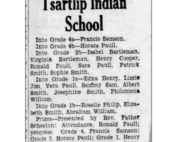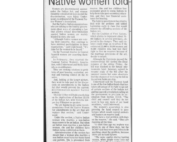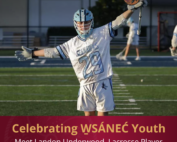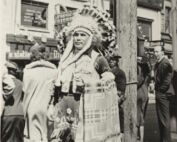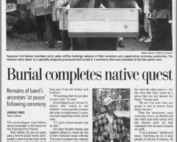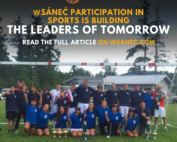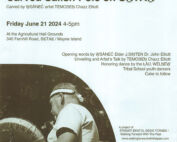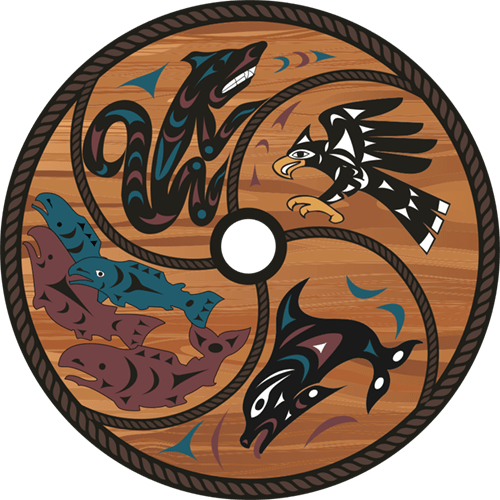Collaboration Between Nations Key To Reclaiming Land Rights
The W̱SÁNEĆ Leadership Council is celebrating the victories of BC First Nations who have reclaimed land-based rights in shared territories.
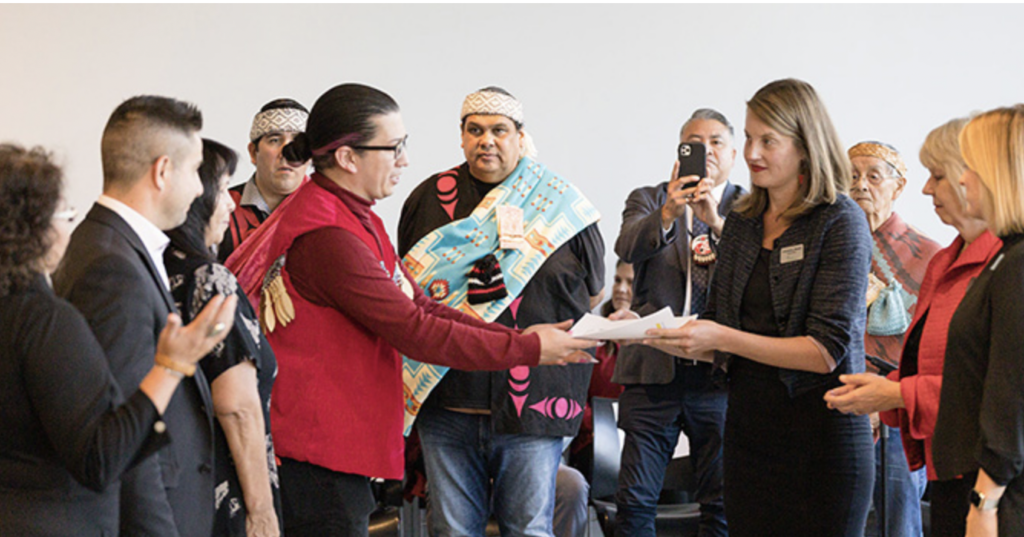
Shown above, Musqueam Indian Band, Squamish Nation, and Tsleil-Waututh Nation sign a historic collaboration agreement with Vancouver’s UNDRIP Task Force
Challenges in working with colonial bodies to reclaim land rights
Historically, colonial bodies have failed to acknowledge Indigenous perspectives on land ownership, rights, and land use.
Where colonial bodies rely on rigidly defined property lines to determine who “owns” land, Indigenous understandings of who can access shared and overlapping territories is more nuanced, arising from long-standing traditional protocols, linguistic associations, family holdings, and kinship (traditional protocols).
Rather than recognizing traditional protocols, colonial bodies see shared and overlapping territories as lacking clear title. As such, shared territories have been excluded from the rights enshrined in the treaties governing land usage. Subsequently, the thousands of hectares of land in BC that fall under the designation of shared or overlapping territory have fallen to unchecked development and extraction.
To remedy this issue, Indigenous organizations – including the W̱SÁNEĆ Leadership Council (WLC) — are working together to document traditional protocols and to reclaim the rights and titles of shared and overlapping territories.
WLC celebrates the hard work and landmark successes directly attributed to the collaboration between the following communities:
Collaboration by Musqueam Indian Band, Squamish Nation, and Tsleil-Waututh Nation to Implement UNDRIP
Just last month, the City of Vancouver passed a United Nations Declaration on the Rights of Indigenous Peoples (UNDRIP) Strategy, making “Vancouver a national and world leader in implementing a clear strategy towards UNDRIP and reconciliation.”
The new Strategy is the result of collaboration between the Musqueam Indian Band, Squamish Nation, Tsleil-Waututh Nation, to work with the UNDRIP task force in creating the Strategy.
According to the Squamish Nation Chairperson, this is the first time local First Nations and a city have worked collaboratively to implement UNDRIP.
Tsleil-Waututh Chief Jen Thomas spoke to the promise this achievement holds for future collaborative governance, stating, “[t]he UNDRIP strategy is representative of the transformative work that is possible with government-to-government relationships between the City of Vancouver and Musqueam, Squamish, and Tsleil-Waututh Nations, and I hope this good work continues.”
Stó:lō First Nations and Province of British Columbia Entered Collaborative Stewardship Agreement
Like the collaboration of Musqueam Indian Band, Squamish Nation and Tsleil-Waututh Nation, the Stó:lō 9 member communities have successfully united in negotiations with colonial bodies.
Recently, Stó:lō First Nations and the Province of British Columbia entered into an agreement to engage in the S’ólh Téméxw Stewardship Alliance (STSA) Collaborative Resource Stewardship Forum, where they’ll “jointly explore and develop more effective government-to-government processes for shared decision-making and stewardship of the environment within S’ólh Téméxw.”
In speaking about the project, Chief Dalton Silver of the Sumas First Nation emphasized, “[o]ne of our goals in this project is to develop our relationships with the government around maintaining the integrity of our land and resources.” Similarly, Chief Angie Bailey of the Aitchelitz First Nation noted “[t]his is a great opportunity to explore shared decision-making and collaborative stewardship between the Province and the Sto:lo First Nation members of this arrangement.”
Cowichan Nation and British Columbia Enter Government-to-Government Agreement
Like the Stó:lō First Nations, the Cowichan Nation is made up of several smaller communities, working together under a collaborative governance model to negotiate improved lands and usage rights. The 5 member communities: Cowichan Tribes, Halalt, Lyackson, Stz’uminus, and Penelakut are also known as the Cowichan Nation Alliance.
In 2021, the Cowichan Nation and British Columbia entered into an agreement that supports “the advancement of Cowichan Nation’s right to self-determination, including the right to self-government” and is working towards implementing UNDRIP.
Among the initial priorities listed in the agreement is “building understanding and seeking to advance reconciliation regarding the collective national interests of the Cowichan Nation, including the implementation of Cowichan Nation laws, traditions, customs, and practices.”
W̱SÁNEĆ Leadership Council to Host Conference to Support Further Collaboration
Collaborative initiatives such as those detailed above must continue to protect shared and overlapping territories, including those traditionally used by W̱SÁNEĆ community members.
To this end, the WLC is planning a conference to encourage further collaborative efforts to protect W̱SÁNEĆ land and other indigenous territories. WLC sees this emergence of collaboration and collaborative governance as pivotal historic moments and looks forward to engaging the W̱SÁNEĆ community further.
Stay tuned for dates and registration details.


